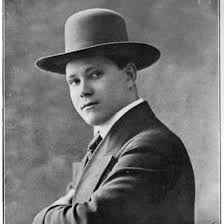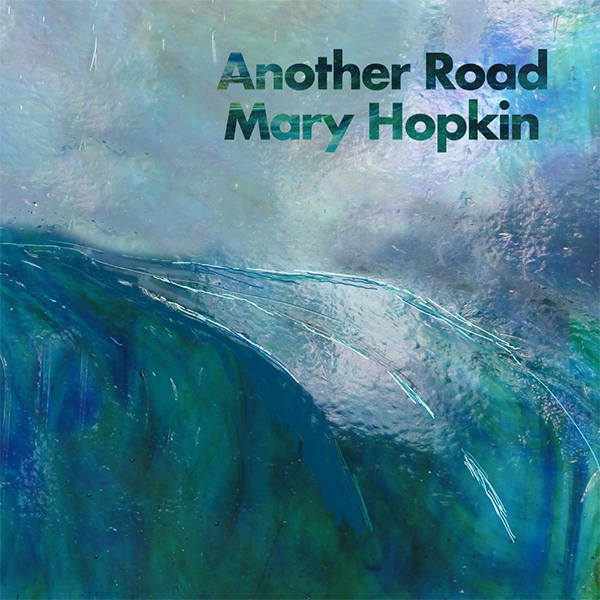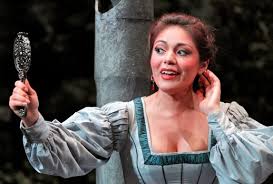|
Saturdee
Opry Links # 97: Dead and Living Edition
Saturdee Opry Links' "Dead and Living" Edition
is/are now here for you to ignore. Enriching, engrossing, enlightening,
enthralling. . .guaranteed. But if you prefer news of the day,
bon apetit! Yes! Dead tenors! Living sopranos! Dead composers! Living arias!
Surprises! (Well, one.) Will wonders never cease? Well, they substantially
have, thanks to COVID, but they live on at Saturdee Opry Links! Ten
selections, overture, and two encores! Urp.
  
Cesar
Vezzani Marian Nowakowski Mary Hopkin
Saturdee Opry Links Overture!
“Abduction from the Seraglio,” by Mozart.
(Dancing allowed.)
https://www.youtube.com/watch?v=GrFbiw77_90
1.
If music is medicine, opera is specific to the heart.
Here is a heartening French aria about, you guessed it, love, "Vainement, ma
bien-aimee," from the largely forgotten opera, "Le roi d’Ys," by Edouard
Lalo. "In vain, my beloved. . ." Did I say "heartening?" Well, it's a
curious thing how arias---and all songs---can be about sad matters, yet have
uplifting, comforting melodies. (Think: "Hey Jude.") This is one such, here
intoned by the forgotten tenor, Cezar Vezzani (more about him soon.)
https://youtu.be/yd8hQm7gjMg
Synopsis: Mylio, a young warrior, tries to convince
Rozenn, his bride-to-be, to leave the protection of her handmaidens (who, in
accordance with local custom, refuse to allow him entrance to her living
quarters) and join him in the wedding procession.
Translation: (scroll down)
https://drammapermusica.wordpress.com/2009/05/07/vainement-ma-bien-aimee/
2.
The forgotten Corsican tenor, Cesar Vezzani, couldn't
read, couldn't write---but he could really sing. Discovered by soprano Agnes Borgo,
she sort of took over his life---teaching him literacy, honing his voice,
and sending him to the Paris Conservatory to study. And. . .marrying him.
Now that's love. Or was it? Both were subsequently signed to appear together in various
U.S. opera houses, but WWI killed that bit of would-be history. Cezzani was
wounded in action and came home to. . .divorce! Sic transit gloria mundi!
Then came remarriages, and performances
mostly in provincial opera houses. Bye-bye, U.S. career! Much later, during World War II, he somehow
spent time in North Africa, singing frequently in Algiers, which sounds a
lot like tragi-comedy. His quasi-career
eventually found him as principal tenor in Toulon on the French Riviera,
which was apparently a welcome eenough event. But it was brief: in 1948, while
rehearsing, the poor man suffered a paralyzing stroke. He returned to
Corsica, broke, no income, unable to move, spending his remaining
three years of life in poverty, entirely dependent on friends. Vezzani mercifully died in a
hospital in Marseille, and was buried in his home town of Bastia, where a
street is named after him. Some tribute. Not exactly the life he should have
had. . .Fortunately for us, he somehow made about 170
recordings in the 1920's and early '30's(!). Here he is at his dramatic
best, way back in 1927, with a French version of "No Pagliaccio non son," from
"Pagliacci," by Leoncavallo. "Non! Paillasse n'est plus," or "No! I am
Pagliaccio no longer!" It's a wow. Hail, Cesar!
https://www.youtube.com/watch?v=AsRroei3DG0
Translation:
https://www.opera-arias.com/leoncavallo/pagliacci/no-pagliaccio-non-son/
Synopsis: This is where Pagliacci, having realized that
his beloved and stage partner is cheating on him, departs from the script of
their play and begins raging, unbeknownst to the audience.
3.
Sic transit gloria mundi, as I said, but poor Cesar Vezzani's gloria mundi
transited before it ever quite got started. Despite a marvelous,
powerful, downright beautiful voice, the tenor was forever relegated to
small-time touring (mostly France), singing concerts in theaters. He should have been
at the Met! Or at least Paris Opera. But the breaks don't always come, and
some people just are not self-promoters. (I speak from experience.) Here is
the poor fellow in a downright glorious "Au Fond Du Temple Saint," the duet of loyalty
from "The Pearl Fishers," by Bizet, accompanied by his sometime colleague,
baritone Louis Musy.
Synopsis:
After a self-imposed absence, Nadir returns to the shores of Ceylon, where
his friend Zurga has just been elected Fisher King by the local pearl
fishermen. The two, whose friendship had once been jeopardized by falling in
love with the same woman---a gorgeous Brahman princess---vow to put that
aside and friends.
https://www.youtube.com/watch?v=zJiA1LoRF3Q
Translation: (scroll down)
https://medicine-opera.com/2012/03/the-pearl-fishers-duet/
4.
Can't stop listening to Cesar Vezzani's electrifying
singing. One more selection today from this tragic singer: "Ah! fuyez, douce
image" from "Manon," by Massenet.
Synopsis: The reception room in St. Sulpice church,
France, 18th century. After entering the seminary in order to forget about
Manon, Des Grieux finds that he is unable to forget his love for her. He
prays to God to remove this shadow from his heart. (Hint: it doesn't work!)
https://www.youtube.com/watch?v=3Mwszjw_g14
Translation: (scroll down)
https://www.opera-arias.com/massenet/manon/ah-fuyez-douce-image/
5.
Okay, we're piling on. This might be the most obscure
selection in the history of Saturdee Opry Links. Here is a forgotten singer
with a (largely) forgotten aria from a forgotten opera. What? Fugeddaboudit! It's
not a gem, but it has its power, and has outlived the fame of its opera and
composer. Theodor Scheidl? Right, no reason to have heard of him. Heinrich
Marschner? Right, no reason to have heard of him. Yet Marschner was a
prolific composer of operas in the 19th century---bridging the gap between
Carl Maria Von Weber and the progressiveness of Richard Wagner. Asleep yet?
Scheidl was, of all things, a pentathlete in the 1906 Olympics who turned to singing, and
wound up at Bayreuth (and elsewhere), specializing in Wagner (another kind
of Olympics.) But here is aria that remains (rimshot) of the supernatural
1833 opera, "Hans Heiling." It's called "An Jenem Tag," and roughly means
"Those were the days." Which is really the whole reason I chose the
aria---an excuse to post the Mary Hopkin song, "An Jenem Tag" (below.)
Synopsis: Heiling is a legendary person in German and
Bohemian mythology. The stories originate from German inhabitants of Loket
(now in the Czech Republic). The son of a water fairy from the river Ohře,
who taught him to master magic and command spirits. Once he had become rich
and powerful, he ordered the spirits under his command to build a great
city. In this aria, Heiling ascends to the earth to find his would-be bride,
Anna. Ma encourages Anna to accept the advances of the rich stranger. He
professes his ornate, impassioned love in a way that would have impressed
Barry White.
https://www.youtube.com/watch?v=0efgfAI4ovs&feature=share
Translation:
On that day when you promised me loyalty
when I wrestled at your feet in joy and pain,
there, yes there, morning has broken in my chest,
for the first time satisfied my soul was urge.
From a gloomy, joyless night
I woke up to the bright life
You, yes you, have made me exceedingly happy!
O never let your loyalty waver
hold the love in your heart
I only live in you!
I love you so without barriers
I love you with a thousand pains
I love you with agony!
Could you ever leave me
Could your heart ever grow cold
Sore! both of us then!
Take hold of the thought
the dark forces
drive me to hideous
vengeance!
I love you with a bleeding heart
I love you with endless pain
with suspicion and fear,
with maddening desire!
(Phew!)
ANNNNNDDDD. . .
Here is Mary Hopkin's "An Jenem Tag." Those of you who
read through all this boring stuff are hereby rewarded! Mein freund!
https://www.youtube.com/watch?v=6I7LJpR1QDI
And here's the German, so you can sing along!
https://lyricstranslate.com/en/jenem-tag-mein-freund-day-my-friend.html
And by the way, Ms. Hopkin has a brand-new album,
“Another Road”---the first for which she wrote all the tunes---coming Aug.
31! Not bad for turning 70.
http://www.maryhopkin.com/

6.
Okay, back to the present, with some living singers. Here is a little
experiment. First is the wonderful, dusky-toned Latvian soprano, Elina
Garanca, on stage at the Met, singing the sultry, gorgeous "Mon cœur s’ouvre
à ta voix," or "My heart opens to your voice," from Saint-Saens "Samson et
Delilah." (Her compadre is Roberto Alagna.) Pretty good stuff, eh? Smoky,
alluring, seductive, beautiful. No faulting it, unless you are a nitpicky
opera snob of esoteric demand. And then I have posted the late Jessye Norman
in a concert performance of the same aria. This is not to compare one singer
with the other, necessarily, but rather to illustrate the demands of singing
an aria in the context of performing an entire opera, as opposed to just
performing the "hit" on stage. Which rendition is the more affecting?
Here is Garanca (engaging in the obscene simulated sex and groping that is
so vulgarly popular in opera now):
https://www.youtube.com/watch?v=zxY3gYX6mVs
And here is the great Ms. Norman in a performance guaranteed to evoke tears:
https://www.youtube.com/watch?v=WP3-xk9aaik
OR, TO BE MORE EQUITABLE. . .here is Garanca in a concert performance of the
same aria. Any different?
https://www.youtube.com/watch?v=LoXqkUZW7do
Setting: the valley of Soreck, ancient Palestine
Synopsis: In an attempt to close the trap which she has set for Samson,
Dalila tells Samson seductively that she will surrender herself entirely to
him if he wants her. She begs him to respond to her caresses, hoping that he
will finally forget about the Israelite rebellion he is leading against the
Philistines. If Samson concentrates completely on her, the High Priest of
Dagon may be able to capture him. DON'T DO IT, SAMSON!
Translation:
http://www.aria-database.com/search.php?individualAria=916
7.
Beloved Renee Fleming is 61 now, and while her best years are behind, is
still possessed of allure and greatness of voice. On Aug. 1, she performed a
live recital for the Metropolitan Opera (only $20 a pop to view), featuring
nuggets and obscurities. She remains compelling, even mesmerizing at times,
at least for her commitment to the song at hand. But gee whiz, she could
have put on more than a bathrobe, even if this was a rehearsal. (Just a
joke.) This is the poignant, "Adieu, notre petite table, " ("Goodbye, my
little table") from "Manon," by Massenet.
Setting: Apartment of Chevalier Des Grieux, Paris, France, 18th century
Synopsis: Manon has been told by a nobleman that her love Des Grieux will
soon be kidnapped by his father's men in order to get him away from her. She
knows that the happy days they have spent in Des Grieux's apartment will
soon be at an end and takes the opportunity to bid adieu to the table at
which she and her love ate many meals together.
https://www.youtube.com/watch?v=IyQ4ewlypa8
Translation:
http://www.aria-database.com/search.php?individualAria=610
8.
Here is another living singer, for a refreshing change,
the much-in-demand soprano, Ailyn Perez. Here she sings an aria that I also
sing, every morning in the bathroom. This is "Dis-moi que je suis belle,"
from "Thais," by Massenet. "Tell me that I am beautiful!" With English
subtitles.
Setting: Thaïs's house, Alexandria, Egypt, late 14th
century
Synopsis: Thaïs sits alone in her room gazing into her
mirror. She worries about getting old and asks her mirror to tell her that
she is still beautiful and that she will be beautiful until the day she
dies.
https://www.youtube.com/watch?v=HJK5jhyOZLo
Translation:
https://www.musixmatch.com/lyrics/Fanny-Heldy/Tha%C3%AFs-Dis-moi-que-je-suis-belle-Air-du-Miroir/translation/english

Ailyn
Perez
About Ms. Perez:
https://en.wikipedia.org/wiki/Ailyn_P%C3%A9rez
9.
Anja Harteros interrupted her brilliant career for
years in order to care for her ailing husband. Whether he recovered or not,
I could not glean from the Internet. Harteros is famously private, to
indulge an possible oxymoron. But she did return to frequent performance
before human idiocy yielded the COVID catastrophe. Imagine the art of all
kinds that simply is not being made right now, the artists who are being
deprived of the greatest expressions of their lives. . .Here is Ms.
Harteros, justifiably regarded as possibly the greatest soprano of her time,
with the chestnut, "Ebben, ne andro lontana," from "La Wally," by Catalani.
https://www.youtube.com/watch?v=lqXYQhdziEQ
Setting: The main square of Hochstoff, Switzerland,
19th century
Synopsis: Wally is in love with Hagenbach. Her father
does not like Hagenbach and wants her to marry his own friend, Gellner. He
gives her an ultimatum: marry Gellner or leave the house. When faced with
the decision, Wally decides that she must leave. She despairs that she will
never see her house again but she knows that she must be firm.
Translation:
http://www.aria-database.com/search.php?individualAria=605
About Ms. Harteros:
https://www.nytimes.com/2017/07/04/arts/music/whats-keeping-anja-harteros-one-of-operas-greatest-sopranos-from-singing.html
FINAL BOW:

Grace Bumbry
Okay, kids, here is a nice little "flow of life" conclusion for today. First
is the great Grace Bumbry, still with us at 83, singing "Vissi d'arte" from
Puccini's "Tosca," at the very first Kennedy Center Awards in 1978, in
tribute to honoree Marian Anderson. Second is the great Angela Gheorghiu,
singing "Vissi d'arte" in 2009, at the Kennedy Center Awards, in honor of. .
.Grace Bumbry. "I lived for art!"
Bumbry:
https://www.youtube.com/watch?v=MNizWRzJT1w
Gheorghiu:
https://www.youtube.com/watch?v=CEx2LpSp_ao
Synopsis:
Tosca has just agreed to sexual extortion by Scarpia, promising to bed down
with him if he will spare the life her beloved, the imprisoned artist,
Cavaradossi. She asks God why he subjects her to such injustice. "I never
harmed a living soul."
Translation:
http://www.aria-database.com/search.php?individualAria=302
Saturdee Opry Links ENCORE!
This goes out to Donald Trump and all the other
profoundly stupid, selfish, ignorant, vile, cruel, arrogant pricks (and
prickettes) in our society today. Here is the wonderful Polish basso-profundo,
Marian Nowakowski, singing a passage from Handel's "Messiah," "The People
that Walked in Darkness." If only, as the lyrics go, they could "see a great
light."
https://youtu.be/-LsVgmMVMIc
About Mr. Nowakowski:
https://www.heraldscotland.com/news/12192427.marian-nowakowski/
Back to Opera Links
Back to Home Page
|



